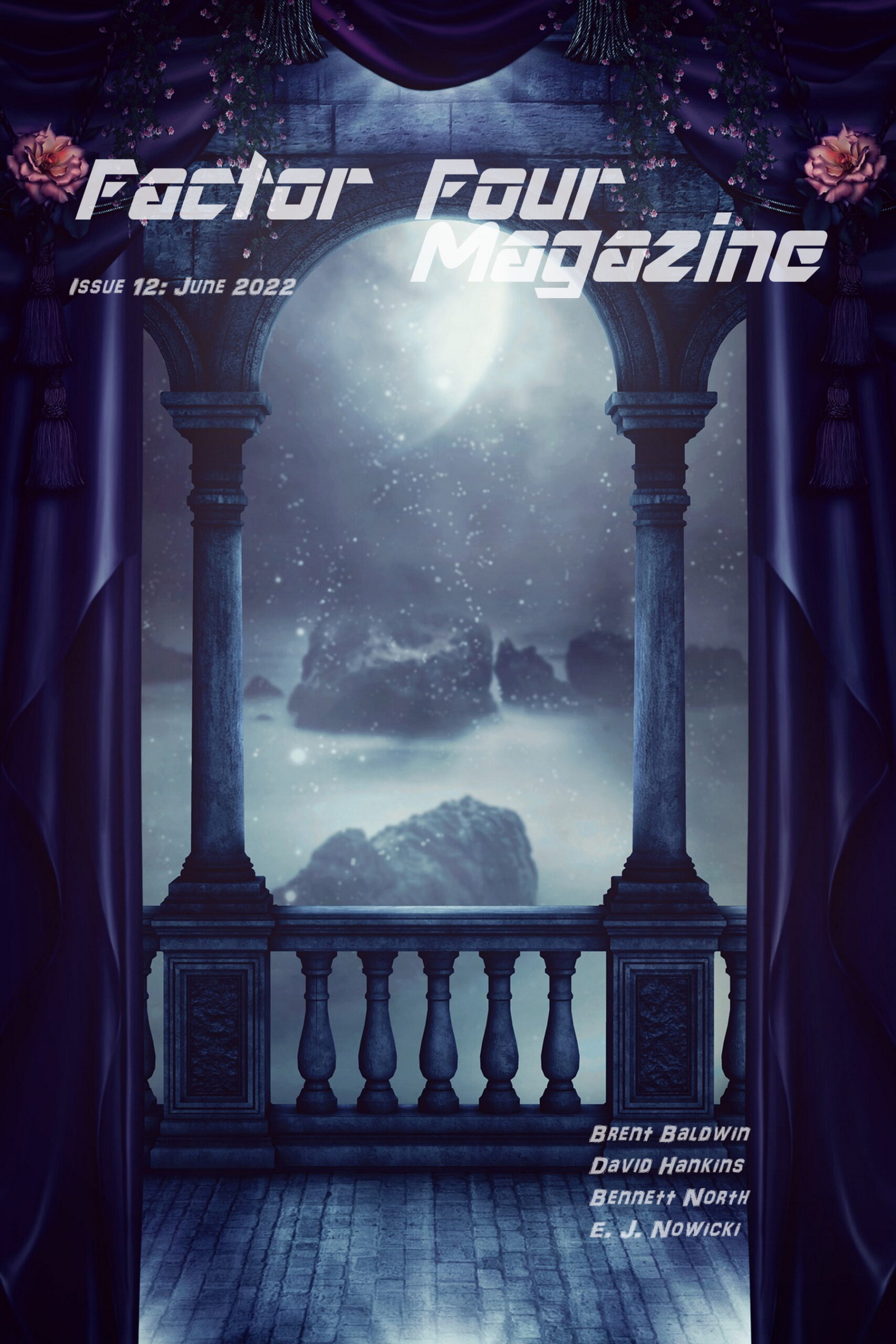The Mission Continues by Brent Baldwin

Dozer and Digger eased out from the forest’s shadows, taking care not to damage the new growth. Dozer tilted its solar panels toward the sun. Its programming didn’t allow it to enjoy the afternoon’s warmth, but the increase in available power gave it something akin to satisfaction.
Over the centuries, little had changed about their core mission. Avoid damaging the environment or themselves, repair system faults when they occurred, and replant a barren world. Entropy and lack of supplies slowed them, but a recent reorganization of Dozer’s fragmented archives had revealed a supply cache, far from their usual planting grounds.
Digger wobbled out of the undergrowth. Its armored carapace bore the dents and scratches of the centuries, but it was a damaged tread that slowed it to a crawl and threatened its operational abilities. It stopped and sent, in an archaic format, a message that amounted to, “Go on without me; this is a good meadow for retirement.”
“Our mission continues,” Dozer responded. “Do you need the towline?”
Digger’s servos sighed as it lumbered into motion amid the waving, amber grasses.
Dozer navigated via the remnants of a map in its long-term memory. Once it would have known this meadow and its position in it to within a few meters, but the satellites had long since fallen from their heavenly perches, and its own memory was riddled with faults. The river beyond it ought to lead to the cache. Its pattern recognition algorithms would need to handle the rest.
A creature dashed from the edge of the meadow into the far tree line. Too small for a bear, too two-legged for a deer.
“Proceed with caution,” Dozer transmitted. “Our mission continues.”
The creatures watched from a distance, their gestures becoming more frantic as the two machines trundled toward them. The first stones clattered from Dozer’s front blade. Larger stones rattled against Digger’s carapace.
Dozer’s operational parameters allowed for no violence, only for retreat if it were endangered. The creatures presented minimal threat.
The river wound past a copse of trees. Dozer avoided the banks where Digger’s treads might slip and catch in the mire. It could drag Digger free, but not without unnecessarily damaging the meadow. Its dosimeter ticked in longer-than-usual intervals, indicating that this was a good place, one that needed to be protected, not replanted.
The creatures gathered ahead of it. Pointed sticks whizzed through the air, impacting with more force than the stones.
“I have been damaged,” Digger transmitted. “I will soon cease operations.”
Dozer extended its towhook and latched onto Digger. “Our mission continues.”
More pointed sticks flew. Dozer registered damage to its solar panels and its right-side optical sensor. Nothing critical, though its charging was impaired. The probability of mission success fell by two percent.
The creatures scattered as the machines approached. A small fire burned in a clearing surrounded by mud and stick creature habitats. Fire was dangerous and should be quenched. Dozer shoved a ton of dirt onto it, to be safe.
Dozer activated its pattern recognition routine. It had been many seasons since their last supply cache, but its routines still knew to look for magnetic lines and the carefully arranged piles of stones. The target lay ahead, partially hidden beneath the largest and most ornate of the creature habitats.
A lone creature stood before the target, clutching a long, curved stick.
“I will move it,” Digger transmitted.
“No unnecessary damage.”
Digger raised its claw. “Of course not.”
A small stick impacted directly into one of Dozer’s sensors. Digger’s claw swung right to left—with perhaps ten percent more force than necessary—and batted the creature out of their path. The creature stumbled and fell, but fled the immediate area under its own power.
Destroying creature habitats was outside of ordinary operating parameters, but the mission took priority. “Digger, dig on that spot.”
Digger’s claw descended. The habitat disappeared. Sticks, stones, and soil flew.
“I have found it,” Digger reported, “but I cannot access the storage.”
A thick, metal door blocked the entrance to the target. It would have stopped any creature on the planet. Dozer first tried sending the correct signal to open it. The door neither opened nor acknowledged the signal. This happened, sometimes. The decision tree moved to the next step: force. Dozer trundled forward, not with speed, but with determination. Its blade crunched into the door. Dirt slipped under its treads. Dozer revved its engines, drawing heavily upon its primary batteries.
The door buckled.
Dozer backed away, giving Digger room to retrieve the spare parts and a cache of regionally-appropriate seeds. Other supplies lay inside, but Dozer had no need of the clothing, the tools, the books, or the history of a people and a world, returned by an accident of programming and entropy.
The creatures gathered around the cache, their eyes wide and their weapons laid aside. Some of the younger creatures shouted and pointed, not at the machines, but at their elders. At the cache, so carefully hidden.
Digger dropped the supplies into Dozer’s storage. With these parts, Digger could be repaired. With these seeds, more forests could be planted.
Dozer set course away from the creatures, dragging Digger toward barren slopes in need of re-forestation. With low batteries and damaged solar panels, it would be days before they could return to the primary mission, but a routine, deep in its core programming, told it that an externality had advanced considerably, far more than the original programmers had estimated.
For now, though, the mission continued.





